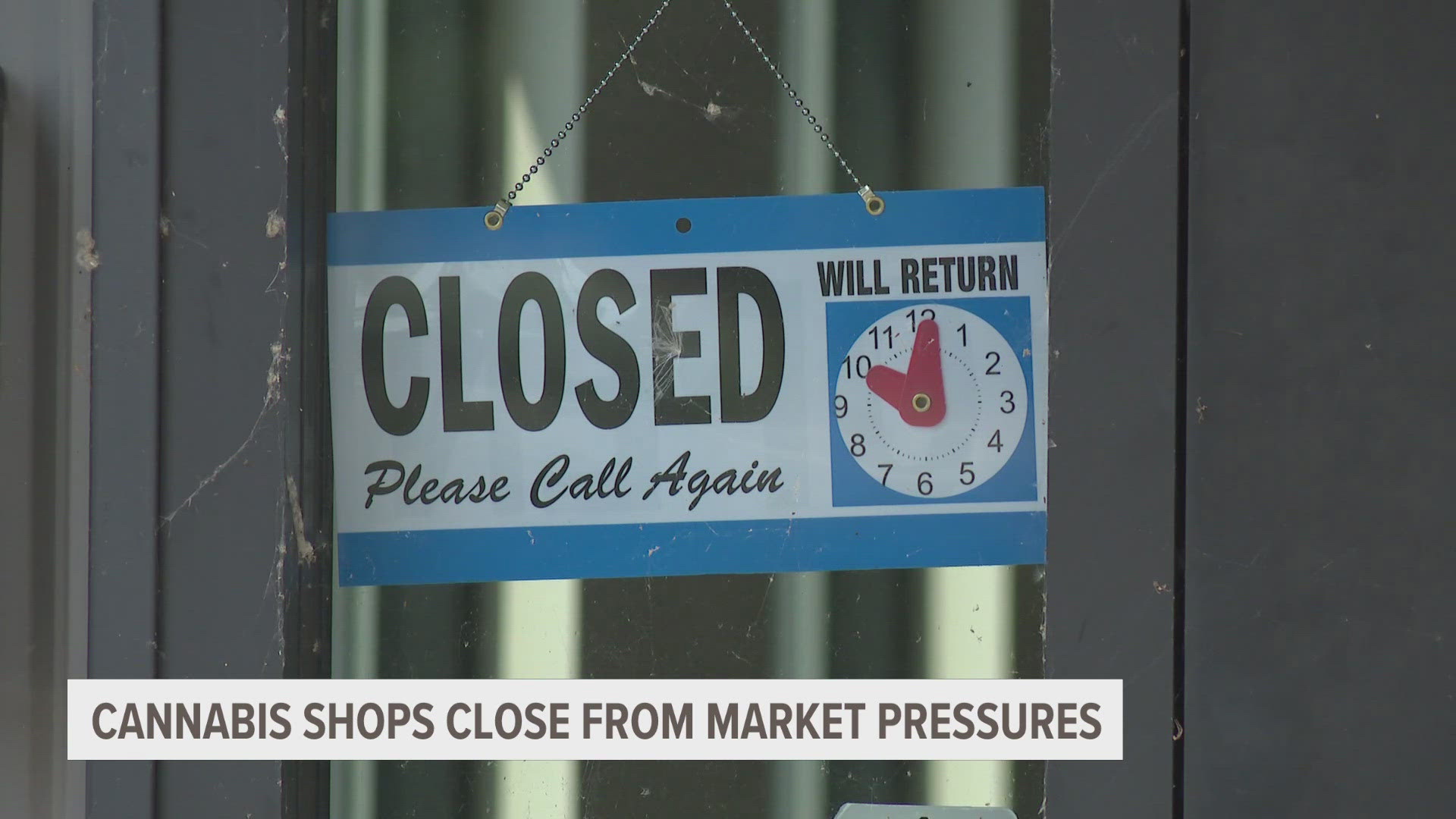One of the groups formed to fight the legalization of marijuana for recreational use has now decided it's for the measure, but only if the Legislature takes it up and amends the proposal.
The Committee to Keep Pot out of Neighborhoods and Schools — a political action committee formed to fight a ballot proposal to legalize marijuana — is now urging the Legislature to take up the initiative, amend it and pass a full legalization of pot for adult recreational use. The committee hopes that if the Legislature acts, recreational use will be regulated as stringently as the medical marijuana industry.
But if the Legislature declines to take it up and the measure goes on the Nov. 6 statewide ballot, the group will revert to opposing the legalization of marijuana again.
“This committee was initially formed to defeat the recreational ballot proposal, but now we believe that the Legislature should amend and adopt the initiative before it’s too late,” said Mark Fisk, a spokesman for the committee. Marijuana legalization “will be a reality in Michigan. Initiatives have been approved in 29 states and polling has been very strong.
“Regardless of our feelings on the issue, the question now is how to regulate and control recreational marijuana."
Republicans in the state Senate are trying to figure out a way to take up the marijuana legalization, in part, to keep it off the November ballot because it’s expected to drive more voters to the polls. Higher turnout traditionally has helped Democrats, which could fuel a blue wave that could jeopardize the GOP’s majority in the state House, Senate, governor’s office and in Congress.
The committee’s only source of funds has come from the Michigan Responsibility Council, a now-defunct group that represented business interests that wanted to get involved in the medical marijuana industry. Republican political consultant Steve Linder, who has been a fundraiser for the Senate Republican Caucus, acted as a spokesman for the Responsibility Council last year.
The effort, Fisk said, is to get the Legislature to amend the proposal so it mirrors the rules and regulations that are in place to govern the medical marijuana industry.
“We think the medical marijuana act that the Legislature passed had bipartisan support,” he said. “And that has a system of accountability that you need to bring to recreational marijuana, too.”
One of the main differences between the medical marijuana regulations and the full legalization proposal is who would hand out licenses. Medical marijuana applications, which are being reviewed now, are approved by a board appointed by the governor and the leaders of the House and Senate.
The ballot proposal would cut out that licensing board and have the state Licensing and Regulatory Affairs department in charge of licensing recreational marijuana businesses.
The ballot proposal also has a higher tax — a 10% excise tax and 6% sales tax — while medical marijuana carries a 3% excise tax and the 6% sales tax. The committee would like to see the same taxes for both recreational and medical marijuana.
Senate Republicans also are exploring ways to convince a wary House of Representatives to take up the measure with some carrots, such as tying the marijuana proposal to a cut in the state’s 4.25% income tax.
But there has been no consensus in the Senate caucus about how or whether to take up marijuana legalization, said Amber McCann, spokesman for Senate Majority Leader Arlan Meekhof, R-West Olive.
“Every option that is available has been discussed,” she said. “They’re weeding through all the details right now.”
The Legislature has three options with the marijuana proposal: Do nothing and it goes to the November ballot; offer a competing proposal for the ballot, or take it up, possibly amend it, and it immediately becomes law without having to get a signature from the governor.
Senate Minority Leader Jim Ananich, D-Flint, said the Democratic caucus wants to let the voters decide the issue.
Fisk said if the Legislature doesn’t come to a consensus to vote on the proposal, “this committee will oppose the ballot initiative” again.
Meanwhile, another group that is opposed to marijuana legalization — Healthy and Productive Michigan — hasn’t changed its position and continues to make presentations to groups around the state on why it believes legalizing marijuana would be harmful to the state.
Along with Smart Approaches to Marijuana, a national organization that has poured $275,000 into the effort to stop legalization in Michigan, the Healthy and Productive group joined with substance abuse prevention activists for a rally at the state Capitol this week.
“We are still 100% against it,” said Scott Greenlee, executive director of Healthy and Productive Michigan. “We don’t think the Legislature should approve it and I don’t think the voters should approve it.”
And the group that spearheaded the petition drive to get the issue on the November ballot also is urging the Legislature to act.
“When even your opposition is arguing in support of marijuana legalization, it is clear that now is the time to end cannabis prohibition in Michigan,” said Josh Hovey, spokesman for the Committee to Regulate Marijuana Like Alcohol. “The Legislature has an opportunity to do the right thing and every day we wait means more unnecessary arrests and lives ruined.”
The Legislature has until June 5 to decide what, if anything, it is going to do with the marijuana proposal.
Contact Kathleen Gray: 313-223-4430, kgray99@freepress.com or on Twitter @michpoligal
►Make it easy to keep up to date with more stories like this. Download the WZZM 13 app now.
Have a news tip? Email news@wzzm13.com, visit our Facebook page or Twitter.



